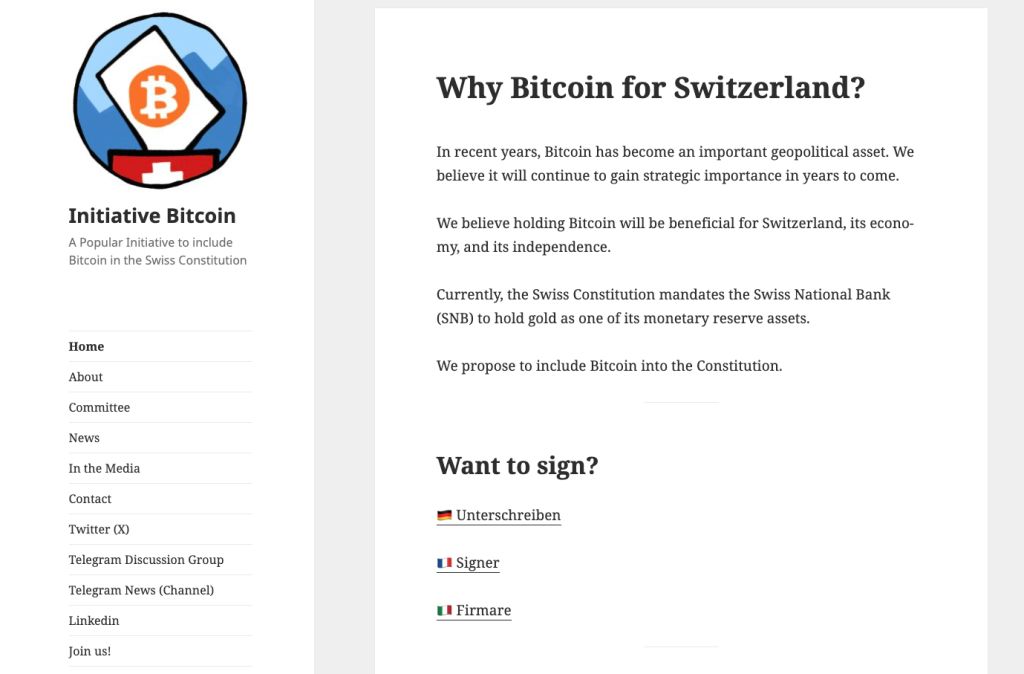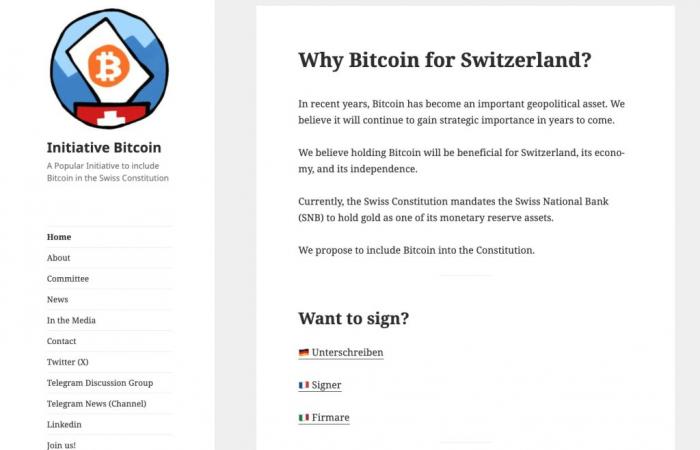Latest Update:
January 2, 2025 3:30 p.m. UTC+1
Auteur
Julien Leroy
Auteur
Julien Leroy
About the Author
Passionate about the world of cryptocurrencies and blockchain technologies, Julien is an independent journalist who explores emerging trends in decentralized finance (DeFi),…
Share
Latest Update:
January 2, 2025 3:30 p.m. UTC+1
Why trust us
The Cryptonews France team is exclusively made up of publishers, editors and journalists with proven expertise in cryptocurrencies, web3 and gambling. They guarantee the accuracy and relevance of all the content on our site. Each content is the result of in-depth work and each fact is verified via reliable sources, and using their experience and expertise.

Switzerland is a country historically favorable to liberalism. The last thirty years demonstrate the country’s economic position on a global scale, the progress made with regard to entrepreneurs and its avant-garde position in its economic approach. Citizens seem to attach increasing importance to bitcoin. What if Switzerland was the first European country to include the asset in its reserves?
-A bitcoin initiative emerges on Swiss territory
On December 5, 2024, a federal popular initiative they are called For a financially solid, sovereign and responsible Switzerland (Bitcoin initiative) “. This initiative being validated by the Chancellor of the Confederation, Viktor Rossi, since December 17, 2024, bitcoin is gradually gaining ground. Made public since December 31, 2024 on the Swiss federal law publication platform (Fedlex), this popular initiative aims to bring about a major change.
In fact, it consists of operating a amendment of the constitution to its article 99, paragraph 3, with the following sentence:
”The National Bank builds up sufficient monetary reserves from its revenues, a part of which must consist of gold and Bitcoin. “
The people behind this popular initiative operate under the title of “Bitcoin popular initiative“. In addition, it should be noted that they have a site to describe their objectives and access to the document in question to sign. Indeed, they express that:
“In recent years, bitcoin has become a important geopolitical asset. We believe that it will continue to gain in strategic importance over the coming years.”

A time limit proving particularly broad
The signing process has been underway since December 31, 2024. The committee will have until June 30, 2026 to obtain and submit a minimum of 100,000 handwritten signatures of Swiss citizens. In addition, available in three languages, the deadline of one and a half years is particularly wide. Indeed, the perception and action of countries with regard to bitcoin can evolve significantly.
However, we are in the process of collecting handwritten signatures. This requires upstream that citizens learn about the subject and that they consider it necessary that the Swiss national bank must add bitcoin to its reserves.
Indeed, once the milestone has been passed, the country’s reserves will partly depend on the fluctuations that the asset will experience. To do this, given the number of inhabitants in Switzerland, more than 1% of the population will have to sign this document so that a national referendum can be implemented in the country.
The constant search for financial sovereignty
Such an initiative demonstrates the desire of certain actors to increase the financial sovereignty of the country. Indeed, the diversification of the Swiss national bank aims to obtain less significant exposure to certain assets, while benefiting from the growth experienced by bitcoin in recent years.
Furthermore, with the spotlight on bitcoin in the United States and the increased reflection around the constitution of a strategic reserve, the asset has a strong chance of continue in its bullish frenzy over the next few years.
Thus, the culmination of such an initiative with a referendum in which the population is in favor could be a real change in the approach implemented by the States during the coming years. This could lead to new dynamics in asset managementonce again demonstrating Switzerland’s position as a player in economic innovation.
Source : FedLex
On the same subject:









